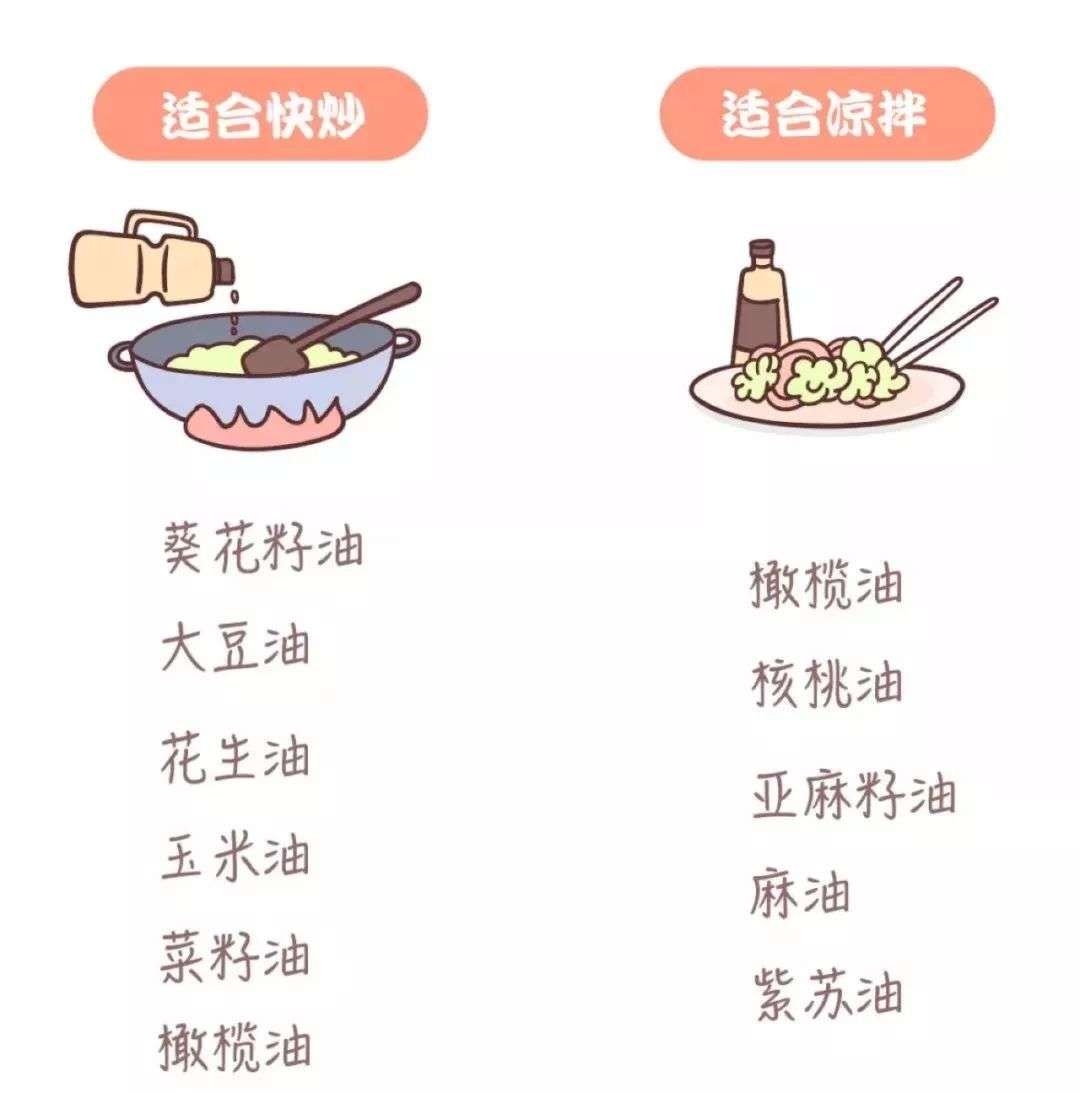In our impression, the baby’s diet is always light. But in fact, when the baby’s supplementary food period starts, you can add some oil appropriately.
In particular, some vegetable oils contain fatty acids, which can also help baby’s brain development after being converted into DHA in the body.
Today, we invited Li Liangli, a nutrition expert, to give us a good talk.
We know that the main ingredient of vegetable oil is fat, which can provide some of the calories needed by babies.
Some vegetable oils contain fatty acids necessary for human body, which can be converted into DHA in the body to help baby’s brain development.
When cooking vegetables, if a proper amount of vegetable oil is added, sufficient fat-soluble vitamins A, D, E and K in vegetables can also be absorbed by babies. What’s more, vegetable oil can stimulate the fragrance of food during cooking, which can make vegetables more fragrant and delicious. Why not?

However, when adding vegetable oil, we should still pay attention to the timing and choose the oil suitable for the baby according to different needs and cooking methods.
Pay attention to the timing when refueling.
1. Does the baby need oil during the supplementary food period?
Starting from 6 months old, the baby can start to eat supplementary foods. The period from the beginning of adding supplementary foods to the age of 1 is called the supplementary feeding period.
Within one year old, milk is the baby’s main food and one of the main sources of fat.
If the baby guarantees 600 ~ 800 mL of milk, 1 egg and 50 g of meat, poultry and fish every day, there is no need to eat oil specially.
However, if the baby mainly eats grains, vegetables, fruits and other foods and does not eat meat or eggs, 5 ~ 10 g of vegetable oil needs to be added every day.

How do babies over 1 year old eat oil?
After one year old, as the baby grows older, the baby is gradually not satisfied with the taste of [steamed water boiling]. Mothers will have to change their cooking methods at this time.
It should be noted that edible oil should be added according to the cooking method, with less or no frying or frying, and never eat it for the sake of eating oil.
- Babies aged 2-3 are recommended to consume 15-20g of oil every day. Babies aged 4-5 are recommended to consume 20-25g of oil every day.
How to grasp the quantity? Generally speaking, 10 g of oil is about the amount of a spoon of porcelain.
If the baby prefers meat, we should add less oil. If the baby likes vegetables, add more oil.
Give your child oil and try these
Vegetable oil rich in-linolenic acid is recommended as the first choice for babies to introduce edible oil at the beginning.
-Linolenic acid is called essential fatty acid and can also be converted into DHA in the body. Needless to say, DHA has what benefits for babies.
1. Flaxseed oil and perilla oil
Flaxseed oil and perilla oil have high-linolenic acid content. However, both edible oils have special smell, which is not acceptable to all babies.
Moreover, the prices of these two kinds of oils are relatively expensive, which are only suitable for cold mixing but not frying, so they are not the first choice for babies.

2. Walnut oil
The content of walnut oil-linolenic acid is about 10% ~ 14%, which is lower than perilla oil and linseed oil, but higher than soybean oil.
Walnut oil tastes light and has no special smell, which is easy for babies to accept. Of course, the price is also slightly higher. If the economic ability is still acceptable, it is a good choice as baby oil.
3. Other vegetable oils such as soybean oil and corn oil
Vegetable oil rich in-linolenic acid is only the first choice for babies to introduce edible oil at the beginning, not necessary.
Soybean oil, corn oil, peanut oil, etc. can also meet the baby’s need for fat. DHA intake can be obtained through DHA-rich foods or DHA supplements.

However, when it comes to the specific situation of giving babies food every day, the taste, usage and price of vegetable oil itself should also be taken into account.
Precautions for Baby to Eat Oil
1. Butter, lard and cream are not recommended.
These three kinds of oils are mainly saturated fat, and unsaturated fat is more important for babies.
Margarine contains hydrogenated vegetable oil, and all people should eat less or no.
2. Don’t add too much oil to the supplementary food.
Excessive intake of fat can easily cause diarrhea caused by poor digestion and absorption of babies.
3. Use different oils according to the cooking method.
Edible oil is the most important thing for babies to provide fat.
Don’t be superstitious about certain kinds of oil, and don’t think that the more expensive the better. You don’t even have to buy [baby oil] specially. The most important thing is to use the right oil in the right place.
Pay attention to changing the types of edible oil regularly and choose the appropriate oil according to different cooking methods.
For example, soybean oil, corn oil, peanut oil, sunflower seed oil and rapeseed oil are suitable for frying. Olive oil, walnut oil, linseed oil and sesame oil are suitable for cold mix.

Reasonable collocation of different types of edible oils is the scientific and economical choice of oil.
